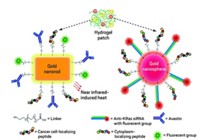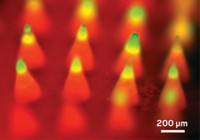Advertisement
Grab your lab coat. Let's get started
Welcome!
Welcome!
Create an account below to get 6 C&EN articles per month, receive newsletters and more - all free.
It seems this is your first time logging in online. Please enter the following information to continue.
As an ACS member you automatically get access to this site. All we need is few more details to create your reading experience.
Not you? Sign in with a different account.
Not you? Sign in with a different account.
ERROR 1
ERROR 1
ERROR 2
ERROR 2
ERROR 2
ERROR 2
ERROR 2
Password and Confirm password must match.
If you have an ACS member number, please enter it here so we can link this account to your membership. (optional)
ERROR 2
ACS values your privacy. By submitting your information, you are gaining access to C&EN and subscribing to our weekly newsletter. We use the information you provide to make your reading experience better, and we will never sell your data to third party members.
Pharmaceuticals
Virus helps unmask anticancer drug to attack brain tumors
Phase I clinical trial results show promise for new glioma treatment
by Michael Torrice
June 6, 2016
| A version of this story appeared in
Volume 94, Issue 23

For patients with extremely aggressive brain tumors called high-grade gliomas, treatment options are limited, especially for recurring forms of the disease.
But results from a Phase I clinical trial show promise for a treatment that combines a virus and a prodrug (Sci. Transl. Med. 2016, DOI: 10.1126/scitranslmed.aad9784).
Gliomas exist in two forms in the brain— as a solid tumor and as tumor cells that infiltrate healthy tissue. Neurosurgeons can remove the solid tumor, but not the infiltrate. So after surgery, patients receive both radiation and chemotherapy to attack this remaining diffuse tumor tissue.
Unfortunately, anticancer drugs struggle to reach this tissue because they have a hard time passing through the blood-brain barrier. The new treatment, developed by the biopharmaceutical company Tocagen, acts like a Trojan horse to produce an anticancer drug in glioma tissue, says Michael A. Vogelbaum of the Cleveland Clinic Foundation, who led the trial.
During testing, neurosurgeons injected an engineered virus called Toca 511 into patients’ brains. The virus infects tumor cells and delivers a gene that makes the cells produce an enzyme called cytosine deaminase, which converts 5-fluorocytosine, a prodrug patients took as a pill, to 5-fluorouracil, an anticancer drug. Though 5-fluorocytosine can effectively pass the blood-brain barrier, 5-fluorouracil cannot.
In the trial, which involved 45 patients, the scientists confirmed that the virus spread through patients’ tumor tissue and successfully delivered the enzyme gene. These patients survived on average almost twice as long as those in another study receiving standard glioma treatments.
Vogelbaum says a Phase II/III trial of the treatment is already under way.





Join the conversation
Contact the reporter
Submit a Letter to the Editor for publication
Engage with us on Twitter